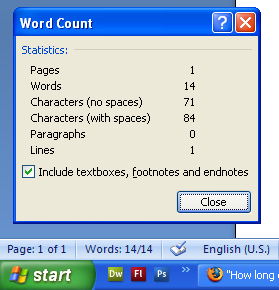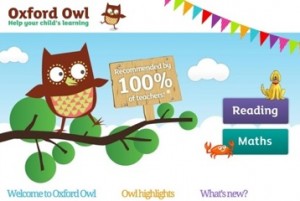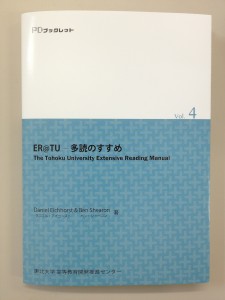blogging expectations extensive reading graded readers materials readers school management
by sendaiben
12 comments
Let’s boycott graded readers that don’t print/publish word counts
Right, I have had enough.
Our graded reader program uses word counts to track student progress. I believe this is superior to using pages or books or time. It makes it easy to compare students across levels, and to standardize goals and progress.
Every year, I spend days searching for word counts, writing them in books, putting them on our website, and even counting words by hand because the publisher refuses to release the word counts for the book (why, Black Cat, why?).
Well, I’m not going to do that any more. I understand that each publisher is free to make editorial and design decisions, and not printing word counts on books is one of them. However, I am also free to decide which books I buy, and I would like to say publicly here that I will no longer be ordering graded readers that do not have word counts printed clearly on them. I have an unlimited budget here at Tohoku University, and a considerable one at Cambridge English, and from now on I will be using those funds exclusively to buy readers from publishers that listen to teachers when they say that they need the word counts on the books.
I would like to invite other teachers that use extensive reading and graded readers to join me. Please contact your sales rep/book distributor and let them know that you care about this issue. I’m guessing that we will see some changes fairly quickly if enough people get involved.
Are you with me? 😉
EFL eikaiwa ES extensive listening extensive reading kids language courses Language learning materials online resources oxford owl Oxford Reading Tree Reading self-study websites young learners
by sendaiben
leave a comment
Oxford Owl website
This is another post I have been meaning to write for a while. Oxford Owl is a free website created by Oxford University Press. It has a range of useful resources -I’ll briefly list a few here.
The website has reading and maths sections. I haven’t done much with the maths so far.
The reading section has a range of free ebooks from the Oxford Reading Tree series. Most of the books can be read online, and feature the art, text, and audio. This is a wonderful resource for self-study at home or in the classroom.
There are also a couple of online games and a range of printable resources for students.
Finally, there is a lot of advice for teachers and parents on how to teach reading and support students with reading practice. Although much of this is aimed at native speakers, a lot of it transfers quite well to EFL.
Is anybody using Oxford Owl? Any good features I have missed? Please leave a comment below:
business curriculum eikaiwa extensive listening extensive reading language courses materials school management self-study teaching technology university
by sendaiben
10 comments
Self-access centres in private language schools
I have always wanted to have some kind of self-access centre (room?) at Cambridge English. I feel it would offer a lot of value to some students, as well as make what we do more effective.
The room would have books, computers, and comfortable chairs. It would have nice lighting and be a quiet, pleasant place.
Students would come and use the room whenever they wanted, and regular classes would also include self-study time (students would have to spend 30-60 minutes of a 90- or 120-minute class doing self-study).
We may have the chance to create something like this this year as our current classroom is too small and there is very little real estate available in Sendai after the 2011 disaster so we have rented an apartment above the school to have classes in.
I would like to do something like this at university as well. For now, I think the best chance is to work with the library.
Does anyone have any experience of implementing this kind of system?
(photo is the Self-Access Centre at Kanda University)
curriculum extensive reading graded readers language courses materials online resources school management teaching Uncategorized university websites
by sendaiben
leave a comment
ER@TU website
The ER@TU (Extensive Reading at Tohoku University) Project now has a website!
Features of possible interest to teachers include the Guide to ER (bilingual page aimed at students explaining extensive reading and this particular program) and the Word Counts page, which lists graded reader titles and word counts only (aimed at teachers and students).
The website has both PC and mobile versions, and is not quite finished yet (to put it mildly!).
The site is a WordPress installation on Bluehost, as explained very thoroughly by Michael Hyatt in this excellent blog post. I paid for three years in advance, bringing the monthly cost to around 400 yen. This works very well, as my contract is also up in three years time, so hopefully this will give me some leverage with the university 😉
Please leave a comment below if you have any questions or suggestions about the site.
curriculum expectations extensive reading language courses materials Reading school management teaching university
by sendaiben
26 comments
The Tohoku University Extensive Reading Manual
I am so thrilled to finally have this on my desk.
This is a 136-page bilingual handbook describing the extensive reading program at Tohoku University. It includes a detailed description of the curriculum, examples of handouts and other materials, and guides to adapting the program to other contexts.
For a limited time, free copies are available. Please leave a comment with your name and work address if you would be interested in receiving one. Alternatively, see me (Ben Shearon) at the JALT Pan-SIG Conference in Nagoya (May), the 2nd Extensive Reading World Congress in Seoul (September), or the JALT National Conference 2013 in Kobe (October) to get a copy.





